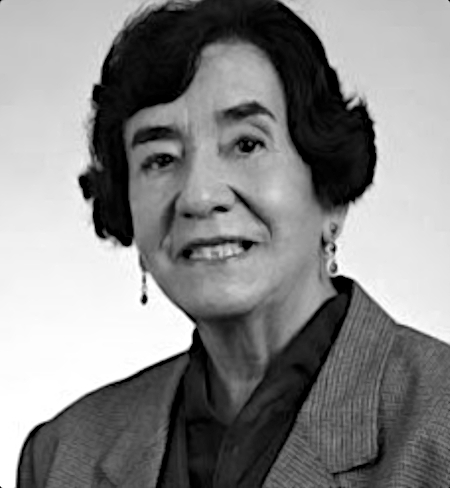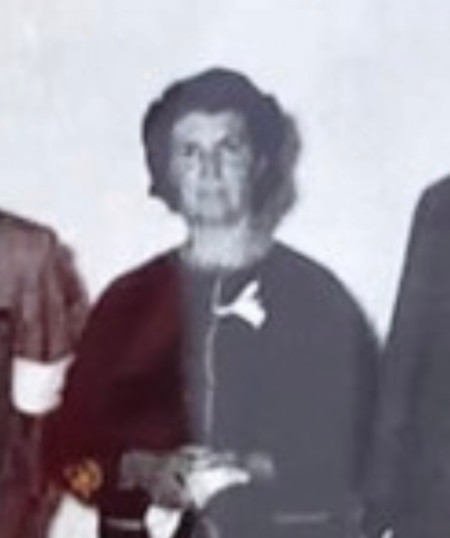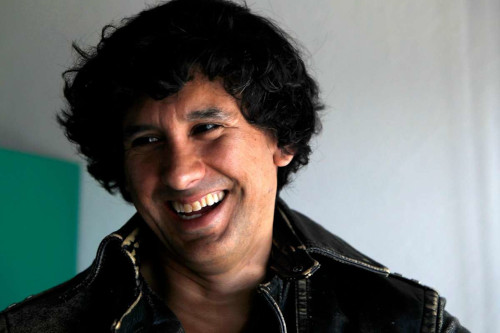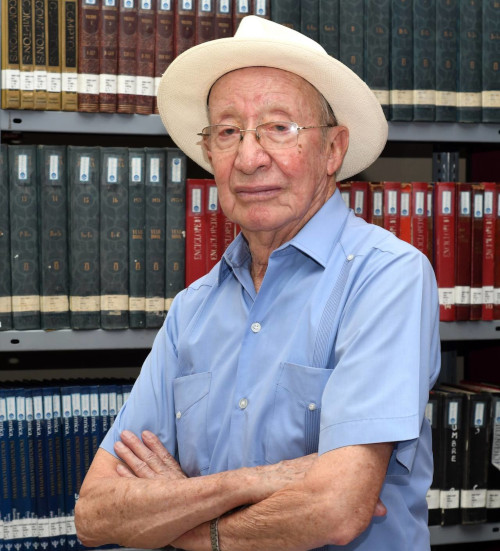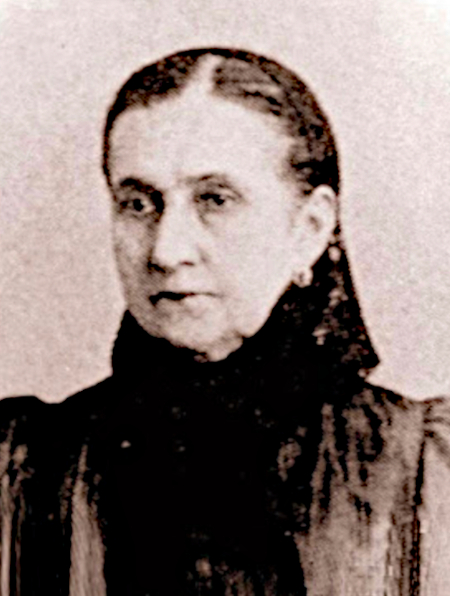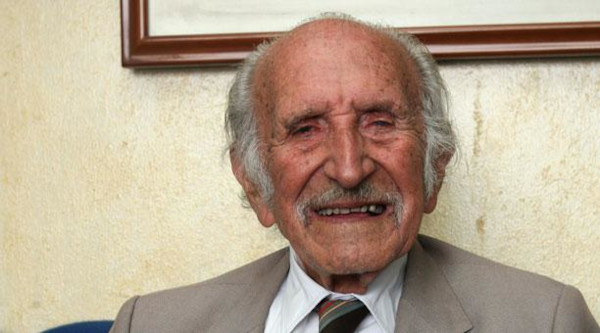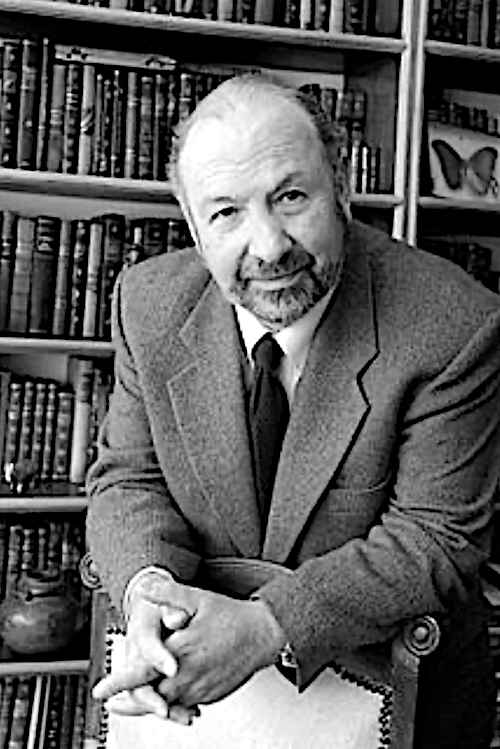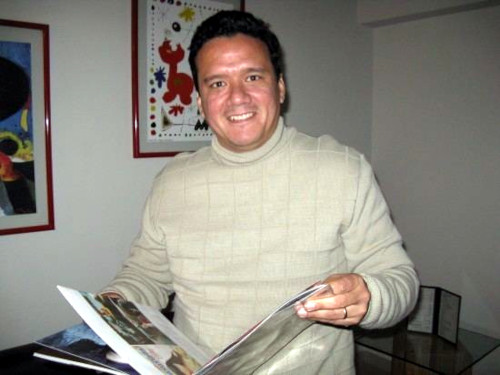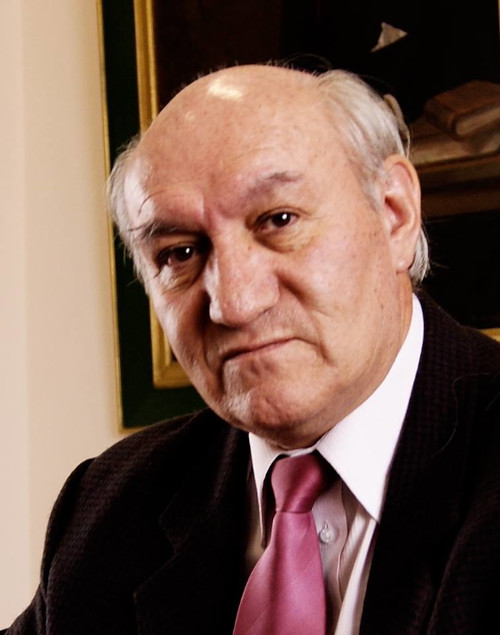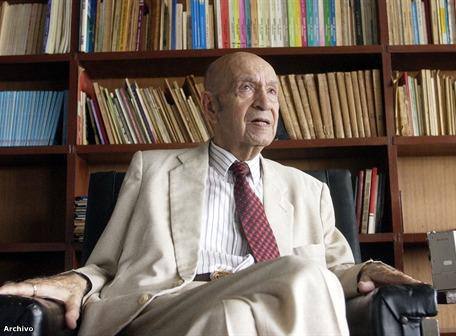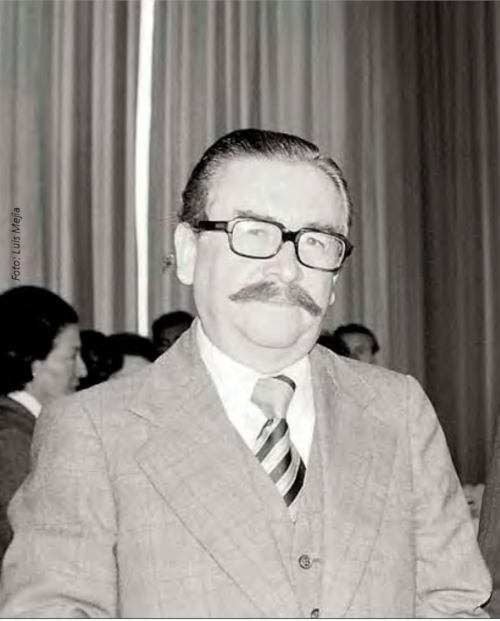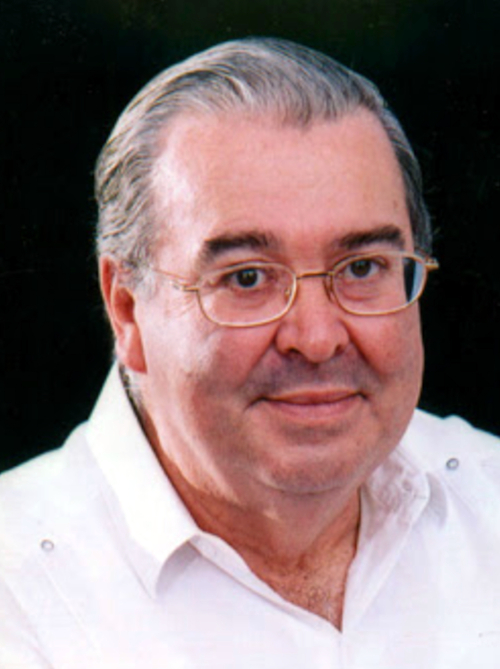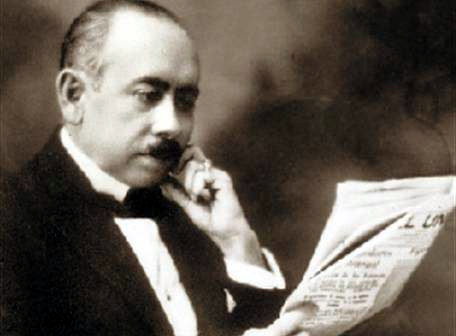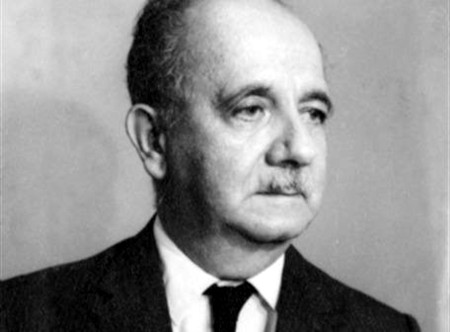The ELAN Group (grupo Elan) emerged as a vibrant literary movement in Cuenca, Ecuador, during the 1940s, representing the neosymbolism or lyrical vanguard movement. They marked a significant departure from previous styles of poetry, aiming to create an authentic and innovative form of Cuenca poetry. Comprised of writers, artists, poets, and journalists born between 1905 and 1920, ELAN shared a sense of unity in their cultural outlook. ELAN’s poetry, characterized by clarity and humanism, continues to exert influence on contemporary literary circles. Within this group, Efraín Jara Idrovo stands out as an exceptional figure known for his remarkable contributions. Their early works and subsequent contributions were documented in various publications, showcasing their dedication to the craft. In 1972, Antonio Lloret Bastidas paid tribute to the lasting impact of the ELAN Group through his publication “Motivos de la Poesía Cuencana” and further honored them with a dedicated volume in his “Antología de la Poesía Cuencana.” The ELAN Group played a pivotal role in shaping the literary landscape of Cuenca and left a lasting impact on the poetry of the region.
Continue reading “The poets of Elan”Posts
Fanny Carrión de Fierro
Fanny Carrión de Fierro (1936) is an Ecuadorian poet, literary critic, essayist and university professor. She is a 4-time winner of Ecuador’s Gabriela Mistral National Poetry Award. She has published essays on a variety of topics, including politics, culture, and society. Her poems have also appeared in English-language anthologies such as “These Are Not Sweet Girls: Poetry by Latin American Women” (1994) and “Eye to Eye-Women: Their Words and Worlds” (1997). She has taught at several universities in Ecuador and the United States. She is currently a professor at Ecuador’s Pontifical Catholic University (Quito). She has also been a visiting professor and Fulbright Scholar at Keene State College in New Hampshire, Willamette University in Oregon, and several other universities in Ecuador. Her work has been translated into English.
Family
Fanny Carrión de Fierro’s parents were Luis Enrique Carrión Carvajal and Leonor Acosta from Ibarra, Ecuador. Carrión de Fierro married Gustavo Adolfo Fierro Zevallos (Ph.D. in linguistics). They had four children: Gustavo Adolfo, Patricia Natalia, Luis Alberto and Pablo Fernando.
Education
She received a Doctorate in Literature from the Pontifical Catholic University of Ecuador (Quito, 1981), as well as a Master of Arts degree from the University of California at Berkeley, and a Bachelor’s degree (Licenciatura) in Education from the Central University of Ecuador.
She has been on the board of the Association of College Professors of the Pontifical Catholic University of Ecuador in Quito. She is also on the board on several development non-governmental organizations.
Member of
- “Grupo America” – an Ecuadorian literary group.
- Casa de la Cultura Ecuatoriana [Ecuadorian House of Culture], Literature Section.
Works
Poetry
- En la Voz del Silencio (1980)
- Ten poems translated into English included in the anthology These are not Sweet Girls, Poetry by Latin American Women, edited by Marjorie Agosin (1994)
- Where light was born: A personal anthology of selected poems by Fanny Carrión de Fierro (1999; translated by Sally Cheney Bell)
- Donde nació la Luz: Antología Personal (2000)
- Desde el beso del tiempo and Esta voz, in Poetic Voices without Borders, edited by Robert L. Girón (2005)
- Alfa Amor, Donde Nació la Luz and Geografía del Corazón, in Poetic Voices without Borders 2, edited by Robert L. Girón (2009)
- Ecuador, on erotic attraction, “Hidden Pleasure” in Eye to Eye-Women: Their Words and Worlds, edited by Vanessa Baird, introduction by Anita Desai (1997)
Short stories
- The Golden Ear of Corn and Other Stories, bilingual collection of short stories. Centro de Publicaciones de la Pontificia Universidad Católica del Ecuador, October 2010.
Criticism
- José de la Cuadra: Precursor del realismo mágico hispanoamericano (1993)
- Los Sangurimas, novela precursora de Cien Años de soledad, an essay about the novel “Los Sangurimas” by José de la Cuadra
- Cien Años de Soledad, Historia y Mito de lo Americano, in: Lectura de García Márquez (Doce Estudios), edited by Manuel Corrales Pascual (Quito: Centro de Publicaciones de la Pontifica Universidad Católica de Ecuador, 1975)
Awards
- Gabriela Mistral National Poetry Award (1958, 1961, 1981 and 1985)
- National Poetry Award of Ecuador (1962)
- “Juana de Ibarbuoru” Poetry Prize, Montevideo, Uruguay (1995).
Other writers with the last name Carrión
Fanny León Cordero
Fanny León Cordero (Gualaceo Canton, October 15, 1920) was an Ecuadorian jurist and poet. León was a member of the Association of Contemporary Writers of Ecuador, whose annual poetry contest is named after her. In 1947 León became Ecuador’s first female jurist, she worked as a judge for 31 years.
Continue reading “Fanny León Cordero”Mauro Javier Cárdenas
Mauro Javier Cárdenas is a critically-acclaimed Ecuadorian novelist. He was born and raised in Guayaquil and studied economics at Stanford University. The New York Times called Cárdenas’ debut novel, The Revolutionaries Try Again, “an original, insubordinate novel.” In 2017, the Hay Festival included Cárdenas in Bogotá39, a selection of the best young Latin American novelists working today. Cárdenas has lived in the U.S. for over a decade. Writing about Cárdenas’ latest novel, Aphasia (2020), literary critic Carlos Fonseca wrote: “Mauro Javier Cárdenas has knocked down the novel as we know it, and built a cathedral out of the debris. Aphasia is monumental, funny, potent, and fresh. It marks a new beginning.”
Continue reading “Mauro Javier Cárdenas”Rodrigo Pesántez Rodas
Rodrigo Abelardo Pesántez Rodas (Azogues, July 25, 1937 – Guayaquil, April 2, 2020) was an Ecuadorian writer, poet, literary critic, anthologist, researcher, university professor, and cultural promoter. He’s best known for his essays and for publishing poetry anthologies containing poems by Ecuadorians. He is especially remembered as an exponent and champion of Ecuadorian women writers. His book, “Presencia de la mujer ecuatoriana en la poesía” (1960), is a poetry anthology that contains poems by 67 Ecuadorian women writers. Other books by him include: “Panorama del ensayo ecuatoriano,” “Ocho poetas tanáticas,” “Jorge Carrera Andrade, amistad y anhelos compartidos,” and “Siete poetas del Ecuador.” As a poet, his poetry books include “Viñas de Orfeo,” “De cuerpo entero,”and “Vigilia de mi sombra.” Among the many awards he received are: the José Vasconcelos Award (an international award from Mexico) and the National Cultural Merit Medal from the House of Ecuadorian Culture. For forty years, he taught Ecuadorian Literature at the University of Guayaquil. He was a member of the House of Ecuadorian Culture.
Continue reading “Rodrigo Pesántez Rodas”Rita Lecumberri
Rita Lecumberri Robles (Guayaquil, November, 14, 1831 – Guayaquil, December 23, 1910) was an Ecuadorian writer and educator. She was a published and awarded poet and essayist. She is also noted for her contribution to the education of women in Ecuador. She was director of the Escuela San Alejo in 1880-82 and 1882-95. A school, (El colegio Rita Lecumberri) is named after her as well as an award.
Continue reading “Rita Lecumberri”Nicolás Kingman Riofrío
Nicolás Kingman Riofrío (Loja, November 18, 1918 – Quito, March 19, 2018) was an Ecuadorian writer, journalist and politician
Continue reading “Nicolás Kingman Riofrío”Francisco Tobar García
Francisco Tobar Garcia (Quito, November 3, 1928 – Quito, February 1, 1997) was an Ecuadorian poet, playwright, short story writer, essayist, journalist, literary critic, diplomat and university professor.
Continue reading “Francisco Tobar García”J.D. Santibáñez
J.D. Santibáñez, born José Daniel Santibáñez (Guayaquil, 1959) is an Ecuadorian science fiction novelist and comic book writer. He studied Illustration at Parsons School of Design in New York. Santibáñez’s literary contributions include two notable novels: “Ejecútese el mañana” (2001; Execute Tomorrow), a thrilling blend of science fiction and noir set in the near future, and “El mago” (2003; The Magician), a captivating fusion of fantasy, supernatural elements, and action. Displaying his creative versatility, Santibáñez also delved into the realm of comic books, crafting the critically acclaimed “Cómic Book” (2008), a compilation of 27 enthralling graphic stories encompassing science fiction and crime. Alongside his remarkable artistic achievements, Santibáñez shares his knowledge and expertise as a professor at institutions such as the Escuela Superior Politécnica del Litoral (ESPOL), Universidad Santa María (USM), and Universidad de Especialidades Espíritu Santo (UEES). His written works, whether in prose or sequential art, enthrall readers with their fast-paced, darkly ironic, and immensely entertaining narratives populated by a diverse cast of characters, ranging from cowboys and time travelers to hitmen and apocalyptic monsters.
Continue reading “J.D. Santibáñez”Jorge Núñez Sánchez
Jorge Núñez Sánchez (Bolivar, February 6, 1947 – Quito, November 1, 2020) was an Ecuadorian writer, historian, and professor. He was the author of 56 books and co-author of 66 other books. He was a professor at the Central University of Ecuador and Treasurer of the National Academy of History. In 1992 he was appointed the director of the Department of History and Geography of the House of Ecuadorian Culture. In 2010 he was awarded the Eugenio Espejo Prize in Culture by the President of Ecuador.
Continue reading “Jorge Núñez Sánchez”Ángel Felicísimo Rojas
Ángel Felicísimo Rojas (Loja, December 20, 1909 – Guayaquil, July 20, 2003) was an Ecuadorian novelist and short story writer. His best known novel is El éxodo de Yangana (1949), which is one of Ecuador’s most important books. In 1948 Rojas published an influential book entitled The Ecuadorian Novel, which set the tone for literary criticism in the country for future decades. Rojas founded the Socialist Party of Loja in 1927. He was a passionate supporter of socialism, which led to his arrest and imprisonment by the Ecuadorian government in 1941. In 1997 Rojas was awarded the Eugenio Espejo Award in Literature.
Continue reading “Ángel Felicísimo Rojas”Galo René Pérez
Galo René Pérez (Quito, April 3, 1923 – June 18, 2008) was an Ecuadorian writer, poet, literary critic, biographer, and college professor. He held various posts in literary and cultural institutions of Ecuador. He was Secretary of Public Education during the government of the former President Galo Plaza, and served as Secretary General of the Council of Government. He was also President of the House of Ecuadorian Culture and Director of the Ecuadorian Academy of Language. He published 14 books in his career. His lectures, essays, articles, literary criticism have been collected and published for study abroad. His style, which is simple and elegant, has won him admirers the world over. He was the 2004 recipient of the “Premio Eugenio Espejo” Ecuador’s highest literary award.
Continue reading “Galo René Pérez”Rodolfo Pérez Pimentel
Rodolfo Pérez Pimentel (Guayaquil, November 2, 1939) is an Ecuadorian lawyer, historian, and biographer. He was declared the lifetime chronicler of the city of Guayaquil, and is a member of the National Academy of Ecuadorian History. Pérez Pimentel is the author of the Biographical Dictionary of Ecuador (Diccionario biográfico del Ecuador), which consists of about 1,600 biographies of nationals and foreigners who have been an integral part of Ecuador. In 2005, Pérez Pimentel won the Eugenio Espejo Prize in the literature category for his lifetime work as a biographer. Rodolfo Pérez Pimentel is a highly respected figure in Ecuadorian literary and historical circles, known for his dedication to research, his extensive publications, and his commitment to preserving the cultural heritage of Guayaquil and Ecuador as a whole.
Continue reading “Rodolfo Pérez Pimentel”Ismael Pérez Pazmiño
Ismael Pérez Pazmiño (Machala, June 30, 1876 – Los Angeles, November 1, 1944) was founder of El Universo newspaper of Guayaquil, Ecuador, and former senator of El Oro province. He published the first edition of El Universo on September 16, 1921. El Universo is still run by Pérez Pazmiño’s descendants. Many educational institutions and streets bear his name in Ecuador. An important national poetry contest by El Universo also bears his name.
Continue reading “Ismael Pérez Pazmiño”Jorge Pérez Concha
Jorge Pérez Concha (Guayaquil, June 5, 1908 – Guayaquil, April 1, 1995) was an Ecuadorian historian, biographer, writer, and diplomat. He wrote biographies of Eloy Alfaro, Luis Vargas Torres, and his uncle Carlos Concha Torres, among others. In 1989 Pérez was awarded the Eugenio Espejo Award in Culture by the president of Ecuador.
Continue reading “Jorge Pérez Concha”
